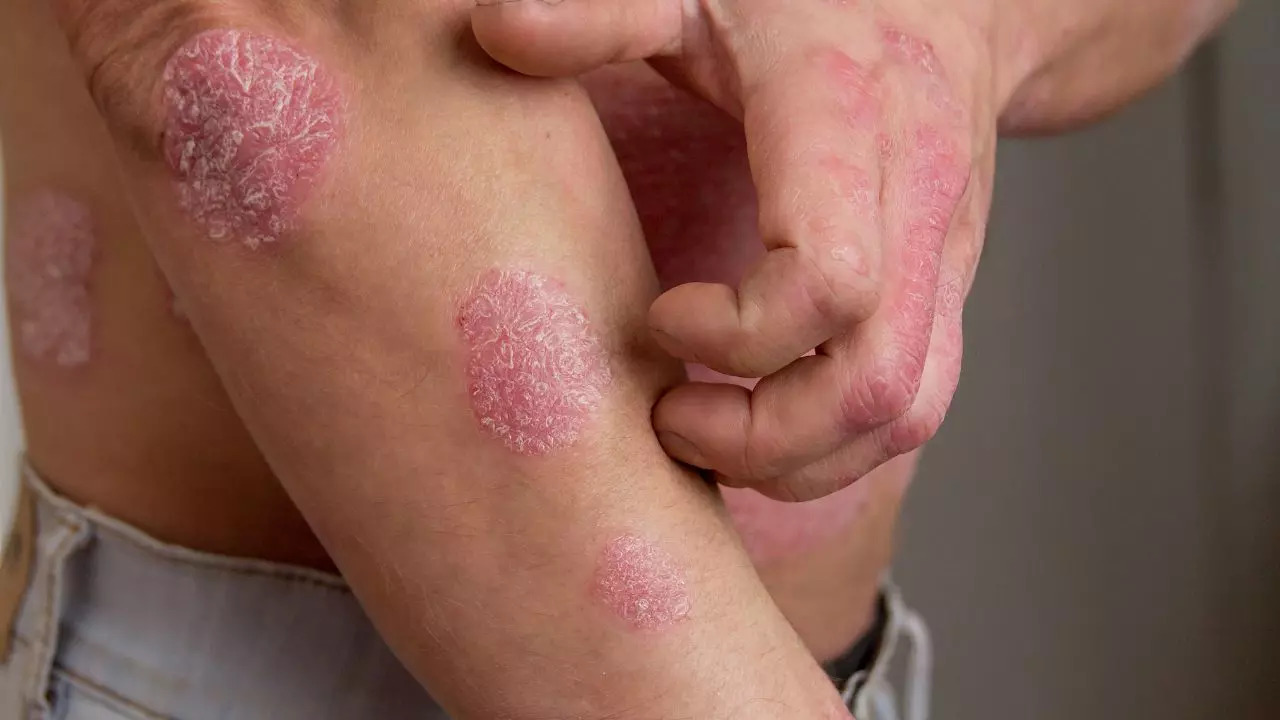Contents
National Psoriasis Awareness Month: 8 factors that may trigger a flare-up
According to the International Federation of Psoriasis Associations (IFPA), more than 125 million people worldwide suffer from psoriasis, which is about 3 percent of the world’s population. There are many factors that can cause psoriasis to flare up. Read on to learn more about what causes psoriasis to flare up.

Factors that trigger psoriasis flare-ups
National Psoriasis Awareness Month Celebrated every year in August. The aim of this month is to raise awareness Psoriasis And also help people suffering from this disease. Psoriasis is a skin disease that causes a rash with itchy, scaly patches. It usually occurs on the knees, elbows, torso, and scalp.
According to the International Federation of Psoriasis Associations (IFPA), more than 125 million people worldwide suffer from psoriasis, representing about 3 percent of the world’s population. “Psoriasis is a common, long-term (chronic) disease with no cure. It can be painful, disrupt sleep and make it difficult to concentrate. The condition goes through cycles, flaring up for a few weeks or months, then calming down for a period of time. Common triggers in people with a genetic predisposition to psoriasis include infections, cuts or burns, and certain medications,” says the Mayo Clinic.
There are many factors that can trigger psoriasis. Here, take a look at 8 factors that can trigger a psoriasis flare.
Tension
Emotional stress is a significant trigger for psoriasis flares. Stress activates the body’s immune response, causing inflammation that can exacerbate psoriasis symptoms. Managing stress through relaxation techniques, mindfulness, or therapy may help reduce the frequency and severity of flares.
Infections
Some infections, especially those caused by streptococcus bacteria, can trigger psoriasis. Streptococcal throat infections are particularly associated with guttate psoriasis, which is characterized by small, drop-shaped lesions on the skin. Treating infections can help reduce their effect on psoriasis.
Skin injuries
The Koebner phenomenon describes the appearance of new psoriasis lesions at the site of skin injuries such as cuts, scratches, sunburns or even tattoos. Protecting the skin from injury and practicing proper wound care can prevent these outbreaks.
Medicines
Some medications can trigger or worsen psoriasis. Lithium, beta-blockers, and some antimalarial medications cause flares in some people. If psoriasis worsens after starting a new medication, be sure to talk to your doctor.
Cold and dry weather
Cold and dry weather can cause the skin to lose moisture, making the skin dry and prone to irritation and aggravating psoriasis. The lack of sunlight in winter also reduces exposure to UV rays, which can naturally suppress psoriasis. Using moisturizers and humidifiers along with UV therapy can help manage symptoms during the cold months.
alcohol abuse
Excessive alcohol consumption increases the risk of psoriasis flare-ups. Alcohol can interfere with the effectiveness of treatments and weaken the immune system, making it harder for the body to control inflammation.
Smoking
Smoking is a known risk factor for psoriasis and can trigger flare-ups. Harmful chemicals in tobacco smoke can affect the immune system and worsen psoriasis inflammation.
Hormonal Changes
Fluctuations in hormone levels that occur during puberty, pregnancy or menopause can cause psoriasis to flare up. For some women, psoriasis symptoms may get worse or better during these periods. Hormonal changes can affect the immune system which in turn can trigger flares.
Get the latest news on Times Now along with the latest updates and top headlines from health and around the world.
Psoriasis


